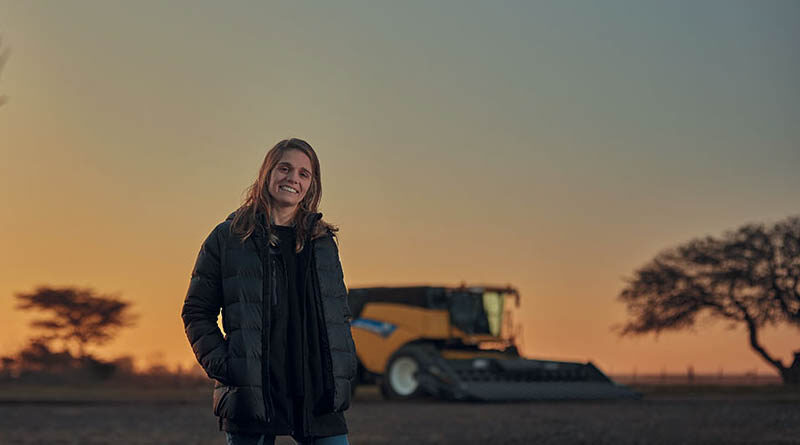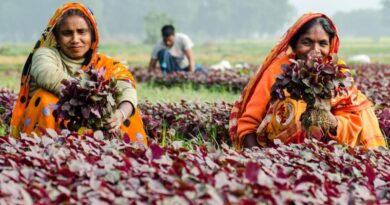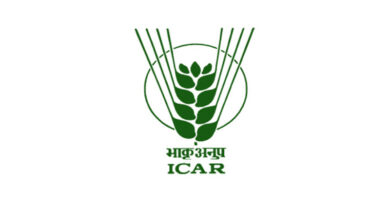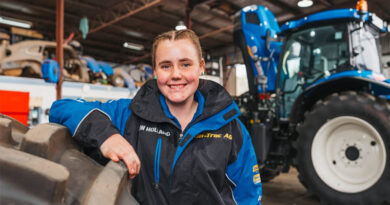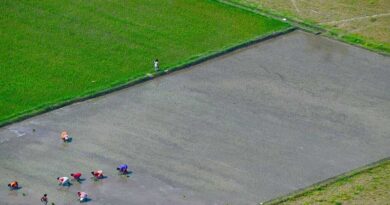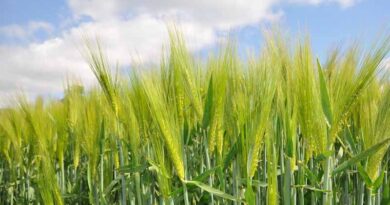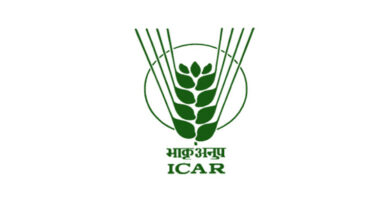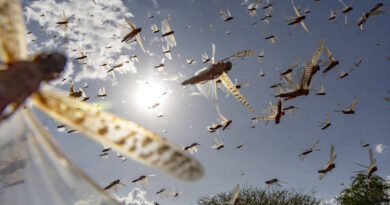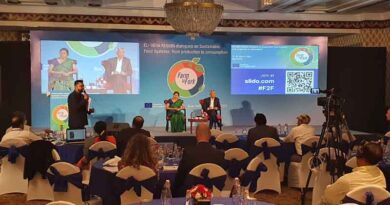On Rural Women’s Day New Holland Celebrates The Crucial Role Of Women In Agriculture
15 October 2020, New Delhi, IN: Women across the world play a key role in agricultural production, food security and nutrition, land and natural resource management, and building climate resilience. On this day, New Holland celebrates their contribution through the stories of farming women from across the world, highlighting their ingenuity, resilience, determination and passion for farming.
Also Read: Need a robust policy framework for agrochemical spray using drones: FICCI-CropLife Paper
On International Rural Women’s Day, New Holland takes the opportunity to celebrate the crucial role of rural women in our society. They are at the frontline when natural resources and agriculture are threatened. The unique challenges of recent times have put the spotlight on the importance of their contribution. The world’s sustainable future is not possible without them. In the words of UN Secretary-General António Guterres: “As early adopters of new agricultural techniques, first responders in crises and entrepreneurs of green energy, rural women are a powerful force that can drive global progress.”
“Throughout history, women have been the backbone of the world’s agriculture,” said Carlo Lambro, New Holland Brand President. “Today’s women in agriculture are farmers, researchers, business owners and innovators. They produce more than half of the world’s food and hold the key to our sustainable future. At New Holland, today and every day, we celebrate their ingenuity, strength, determination and passion for farming.”
The multi-faceted role of women in agriculture has been in constant evolution over centuries, and today they are no different: they are breaking the mould and rewriting how to be a farmer and a woman.
Biati Shudi Ngwenya, in Uganda, made a conscious decision to forge her own path in agriculture: “I came to farming because it is the driver of Africa. Very few people are producing food for the nations, so we need more people to partake in farming and I choose to be one of them. Smart business no longer pays off, but farming does because you are your own manager. More women should come and join farming.”
Florencia Arroyo was born to farming, in the province of Córdoba in Argentina. She lives a double life, in the fields of her family farm and on the catwalk, determined to break through preconceived ideas of a woman’s role in her world: “I enjoy farming and I enjoy modelling, and I love combining the two,” she says. “People who know me outside the farm are surprised that a woman can work in the fields, operate machinery and work like a man.”
Women farmers around the world show uncommon resilience and strength. This can be clearly seen in the North American custom harvesters that have come together in the HarvestHER community founded by Tracy Zeorian in 2017: “HarvestHERs are the women whose families are involved in crop harvest. It’s their stories – the sacrifices made and the struggles that come from being on the road, on the farm, or away from their families and friends that you’ll read on our site. These women give their all to make sure there’s food on your table and at the end of the day, they love what they do.”
An increasing number of women are coming to farming from other sectors, bringing new ideas and a fresh outlook. Elke Pelz-Thaller entered the world of agriculture as a second career when her husband decided to take over his parents’ farm and return it to life. A former Mental and Personal Health Coach, she combines her life as a farmer with her previous career, holding seminars and writing books on how to live a healthier life.
Like her, Ana Eliza Lorenzon left her former career as a lawyer to take over the family farm in Brazil, when she lost her father. She feels the ties to the land very strongly and has taken in her stride the challenge of the multiple roles of a farmer: she is a buyer, a seller, she is the decision-maker when it comes to machinery. “Farming needs for continuous learning: every day, every year is different. A woman in agriculture today has greater overall workloads than men, as she combines farming activities with household responsibilities and, often, non-farm activities. Being a woman, you have to be very assertive, and go above and beyond to prove yourself. Overcoming all the challenges makes me stronger, it makes me grow and pushes me to carry on.”
Jésica Olivo, agronomist, rural contractor and farmer in Argentina, relishes the challenge of taking forward her family tradition in agriculture and build on it, always looking ahead towards the future: “Being a contractor and a woman at the same time is a little bit tough, but it isn’t impossible. I love doing what I do; overcoming the challenge of being a woman who works the land day after day is very rewarding.”
Zaira Cescon shares this passion for farming and, at 17 had already chosen her path: her future is in her father’s vineyards in Northern Italy. “I realized I had this passion last year while we were servicing the grape harvesters. Now I am learning a bit of everything. I hope to have a future in this farming business.”
Angelika Fabisiak left her small town in Poland to study at the Warsaw Agricultural University. In spite of the distance and the new experiences, the attachment to her family business was so strong that she returned to her home town after she received her Master’s degree in agriculture to support her parents’ business. “I enjoy seeing the tangible results of my work, and I am very passionate about agricultural machinery: I can drive a tractor and a combine! I believe that women bring a sense of safety to the farm and can give a great contribution.”
Determination, ingenuity, entrepreneurship, innovation, the desire to break through preconceived ideas and write their own future – these traits make women farmers a powerful force. On the International Day of Rural Women, New Holland celebrates the important impact they have on building resilience and their role in responding to challenges raised by climate change through food production, food security and natural resources management.

